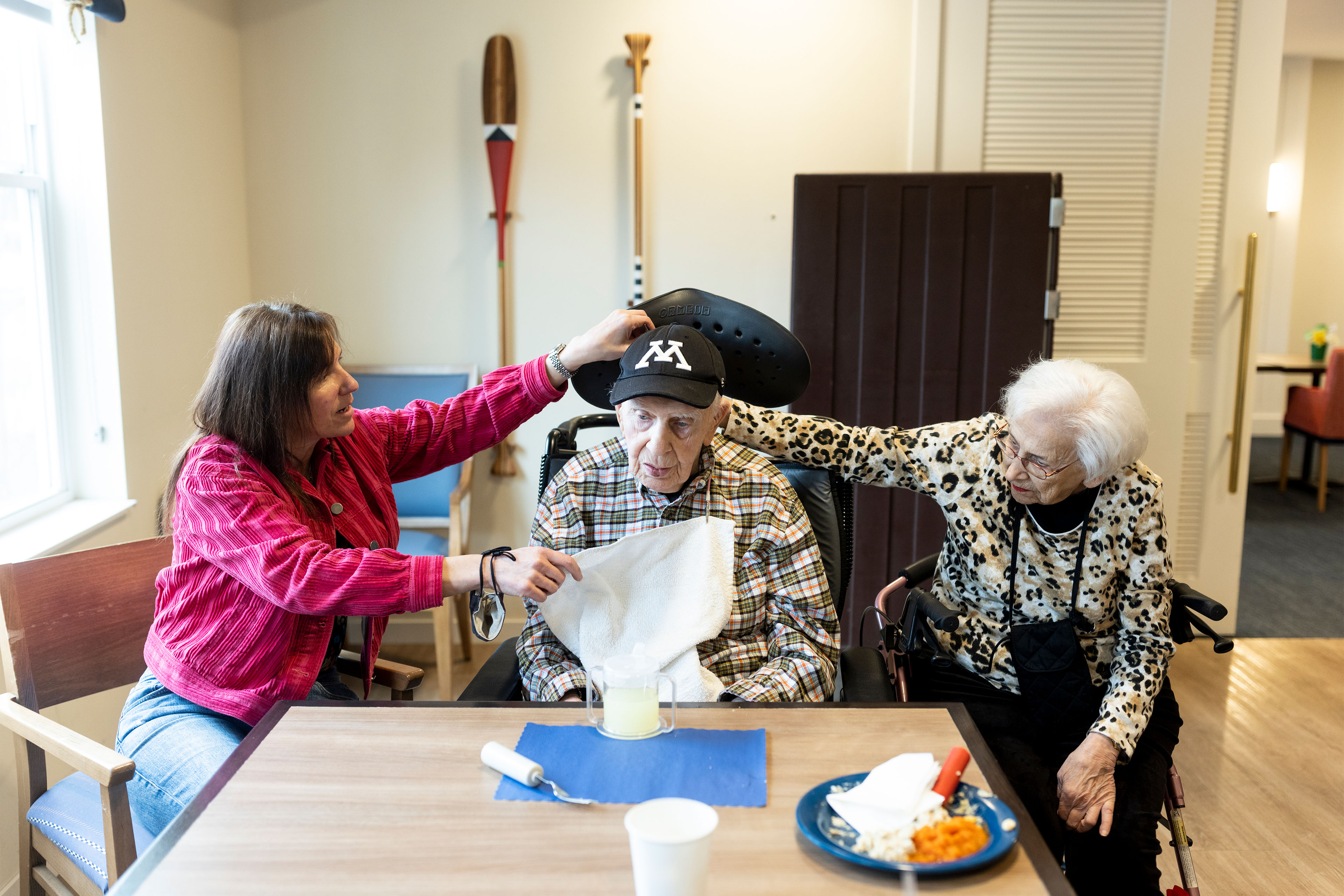Discover the best Memory Care communities with experienced caregivers.
Wiki Article
The Function of Assisted Staying In Providing Specialized Take Care Of Mental Deterioration Clients
The provision of specialized care for mental deterioration clients within assisted living facilities is significantly identified as an important component of reliable mental deterioration monitoring. These settings are created to attend to the distinct cognitive and emotional difficulties dealt with by individuals with dementia, offering tailored assistance that promotes safety and well-being.Understanding Mental Deterioration Care Needs
Understanding the treatment needs of individuals with mental deterioration is vital for giving effective assistance and boosting their lifestyle. Dementia is a progressive neurological problem that impacts cognitive functions such as memory, reasoning, and interaction. Consequently, people with mental deterioration usually call for help with day-to-day tasks, individualized treatment plans, and emotional assistance.Effective mental deterioration care entails acknowledging the one-of-a-kind challenges encountered by each individual. This consists of comprehending the stages of dementia, which can vary from moderate cognitive disability to sophisticated stages requiring comprehensive aid. Care requires may incorporate assistance in managing day-to-day regimens, drug adherence, and maintaining social communications to stop seclusion.
In addition, sensory stimulation and acquainted settings can significantly boost the well-being of people with dementia. Caretakers must be educated to recognize behavioral modifications and employ approaches tailored to each person's choices and previous experiences. Strategies such as recognition treatment and memory can help communicate efficiently and cultivate a sense of safety and security.
Eventually, effectively attending to the care demands of individuals with mental deterioration calls for a compassionate technique, continuous training for caregivers, and a dedication to keeping self-respect and regard throughout the caregiving process.
Benefits of Assisted Living

An additional substantial benefit is the risk-free and protected atmosphere these centers offer. Locals take advantage of functions such as protected entryways and monitored common locations, reducing the danger of straying and boosting total security. Furthermore, assisted living promotes social communication amongst homeowners, cultivating a sense of community and belonging. Involving with peers can minimize feelings of isolation, which prevail in those living with mental deterioration.
Additionally, numerous assisted living facilities offer aid with daily activities, such as medication management, bathing, and dish preparation. This assistance permits citizens to keep their self-reliance while guaranteeing their health and wellness and health are prioritized. Ultimately, assisted living functions as an important source, balancing treatment and freedom for people with dementia and their family members.

Specialized Programs and Activities
(Memory Care Charlotte)Recognizing the special requirements of people with mental deterioration, numerous assisted living centers carry out customized programs and activities designed to enhance cognitive feature and promote general well-being. These programs typically include cognitive stimulation tasks that involve citizens in memory games, challenges, and memory therapy, which motivates the sharing of individual stories and previous experiences.Additionally, art and music therapy play significant roles in promoting creativity and emotional expression (Assisted Living). Involving residents in paint, crafting, or songs sessions can offer therapeutic benefits, helping to lower anxiousness and improve mood. Exercises, such as mild exercises and dance sessions, are also vital, as they promote movement and physical wellness while encouraging social interaction among locals
Structured day-to-day regimens are commonly established to offer a sense of security and predictability for people with mental deterioration. These routines can consist of set up dish times, team activities, and personalized care plans that satisfy individual rate of interests and capabilities. By producing an improving setting filled up with tailored tasks, helped living facilities not only boost the quality of life for dementia patients yet likewise promote a sense of community and belonging.
Trained Personnel and Support
(Memory Care Facility Charlotte)In helped living facilities, the existence of experienced personnel is crucial for giving efficient support to individuals with mental deterioration. These experts have specialized expertise and skills to address the one-of-a-kind demands of citizens, guaranteeing their safety, comfort, and wellness. Staff members get training in mental deterioration treatment, that includes understanding the development of the disease, acknowledging behavior modifications, and utilizing effective interaction techniques.In addition, experienced staff are equipped to carry out tailored care plans customized to every resident's preferences and capacities. This individualized technique promotes a sense of autonomy and dignity, permitting homeowners to take part in meaningful activities that boost their quality of life. The staff additionally play a crucial function in checking wellness and wellness, immediately determining any type of adjustments in condition that might require medical interest.
Along with guide care, trained team provide emotional assistance to locals, aiding to relieve sensations of complication and my company anxiousness that frequently come with mental deterioration. Their compassionate approach develops a nurturing environment where citizens really feel valued and recognized - Memory Care. Inevitably, the competence and commitment of experienced personnel are vital in providing comprehensive treatment that fulfills the complex requirements of individuals coping with dementia in assisted living setups
Household Participation and Resources
Household participation plays a significant role in the treatment of individuals with mental deterioration in assisted living centers. Engaging household members in the treatment process not only boosts the emotional health of the resident but also promotes a joint setting where treatment strategies can be customized to specific needs. Family members can supply important understandings into the preferences, history, and behaviors of their loved ones, which can educate caretakers and result in more personalized treatment approaches.
Moreover, aided living facilities usually use resources for families, such as assistance groups and instructional workshops. These resources can assist households recognize dementia, boost communication strategies, and create coping systems. Participation in these programs can empower relative, outfitting them with the devices needed to support their enjoyed ones properly.
Furthermore, normal interaction between families and team is vital. This continuous discussion allows households to remain notified regarding their liked one's progress and any type of adjustments in treatment plans. Ultimately, a solid collaboration between family members and assisted living facilities cultivates a setting of trust and understanding, ensuring that individuals with dementia receive the specialized care they deserve while preserving their household connections.
Conclusion
Finally, aided living facilities play an important duty in dealing with the distinct needs of dementia clients via individualized care and assistance. By promoting risk-free atmospheres, promoting social communication, and implementing organized regimens, these facilities improve the total well-being of citizens. The involvement of trained team and households better enhances the care experience, ensuring that specific preferences and histories are appreciated. Inevitably, assisted living offers vital sources that dramatically enhance the quality of life for those coping with dementia.Report this wiki page